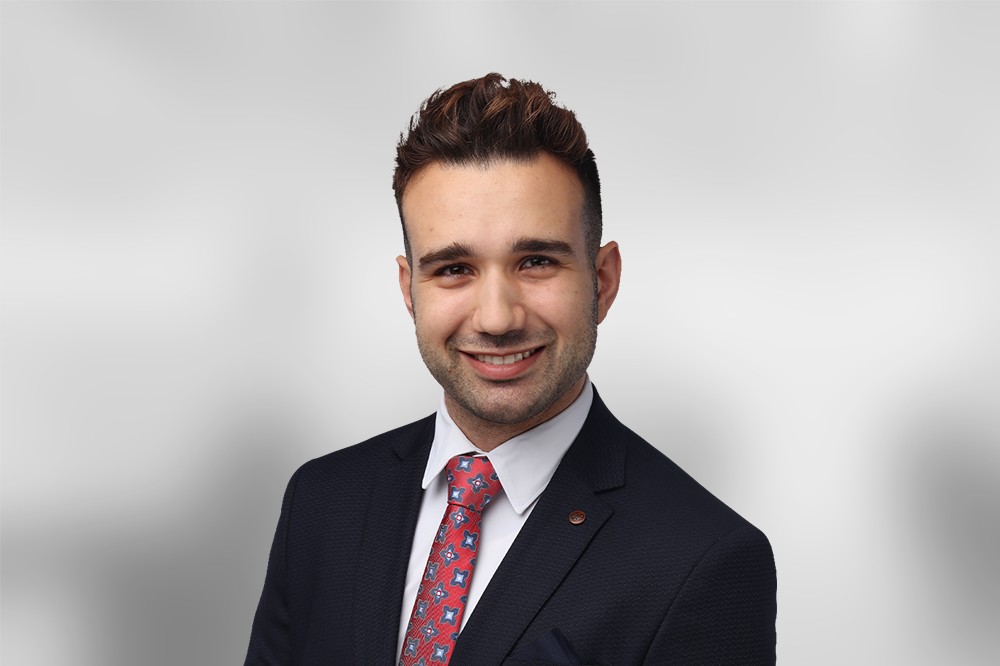Give a brief overview of your role at the firm now, when you joined and your background before joining.
I am a fourth seat trainee solicitor sitting in the Real Estate practice in the Clifford Chance Dubai office. Previously I have sat in the Global Financial Markets practice in Dubai, whereas in London I was part of our Structured, Asset-Backed and Real Estate (SABRE) finance practice and then our Financial Institutions Group (FIG) corporate practice.
Prior to joining the firm, I briefly worked at an immigration investment consultancy after graduating from Law and Business Studies at the University of Warwick.
Why did you become a lawyer (please relate this to your practice area) – what prompted and sustained your pursuit?
Having studied Law and Business Studies at university, as well as taken a selection of business and law modules in high school in Canada, I was drawn to intellectually stimulating work that could engage my understanding of both faculties.
I can recall searching for future career prospects in Vancouver while considering my UK university choices and particularly noting that Clifford Chance LLP had a strong finance practice, a diverse make-up of lawyers and a global presence that I could only dream to be a part of seven years later.
What motivates you in your role?
The opportunity to deliver for my team and play a valuable role in each transaction has been a fundamental source of energy in all my seats as a trainee.
The mantra 'embracing comradery through moments of adversity' has allowed me to thrive. this echoes my experience across many of my other life milestones and was the recipe for winning several regional football championships during high school as well as business acumen and commercial negotiations competitions hosted by magic circle law firms at my university. As they say, teamwork really has made my dreams work.
Ultimately, I find it helpful to remember that every team member is valuable to a team's success and that includes you.
What was your biggest assumption before becoming a lawyer?
I was under the impression that to be a successful lawyer you would have to be a very stubborn, argumentative person. However, a successful career as a commercial lawyer is primarily built on strong relationships with your teams and clients.
For more gentle souls, Clifford Chance offers a one-week litigation course and allowed me to complete four transactional seats and therefore no contentious seats. Having said that, it is worth noting that even in transactional seats, at times it can be important to stand confidently throughout the process.
How would you describe the culture and atmosphere at Clifford Chance?
A strong culture of respect for our colleagues. This foundation allows for excellent teamwork and lines of communication (i) within your deal teams to enhance deal understanding and execution, (ii) extends to our delightful human resources team who assist with career development and (iii) your development supervisor who can help you to find your own work rhythm.
Intelligence certainly is not lacking in the office halls. It is often awe-inducing to be sitting in meetings among some of the sharpest legal minds across niche and generalist practice areas. The training is phenomenal, as the Middle East offices often host events with international professionals to provide bespoke training and make complex concepts appear simple.
Although I might be biased, I cannot imagine a better, more accepting environment to train in, especially if you are looking to be at the forefront of the commercial law practice and working on ground-breaking, first-of-its-kind matters.
What are the key skills you have developed here which have been invaluable to your career?
My time and people management skills have improved dramatically, as these are essential skills to keep on top of several deals simultaneously. Organisation and developing personal systems have helped me to create efficiencies when preparing, reviewing and double-checking my work on tasks.
While none of these skills are expected of you in your first weeks at the firm, you will find the job becomes easier the more you feel capable and in control of your workstreams. The more responsibility you can take for a workstream, the more your direct deal supervisor and the wider team appreciates your effort.
What do you like most about your job?
As I dread monotony, my favourite part of this job has been no two days ever being the same.
Working in the Dubai office particularly enhances the versatility of tasks, as trainees and junior associates are expected to try all the sub-practices of their department, especially in Global Financial Markets. As such, in my last six months I have been involved with project finance, asset finance, real estate finance, Islamic financing and their respective refinancing's to varying extents. Although each area has an associated learning curve, there is always someone senior in the team willing to explain the task/concept. Of course, training at the beginning of each seat is also provided to help you hit the ground running.
What is your key advice for anyone considering a career at Clifford Chance?
Be ready to get stuck in, seek to understand the deal and be one step ahead. While not easy, if this is at the forefront of your mind, you will grow immeasurably and people will notice, appreciate and reward your efforts.
What's the best piece of advice you've received since joining/ OR your best lesson in the industry so far?
The most helpful advice I received in a transactional seat is to keep up with (i) each deal's progress, (ii) the status of your ongoing tasks and (iii) your level of availability to assist with our work. If you have this information, you can both update colleagues on the status of your deals and assess your capacity levels more appropriately and swiftly to then inform other colleagues of the same when asked.



